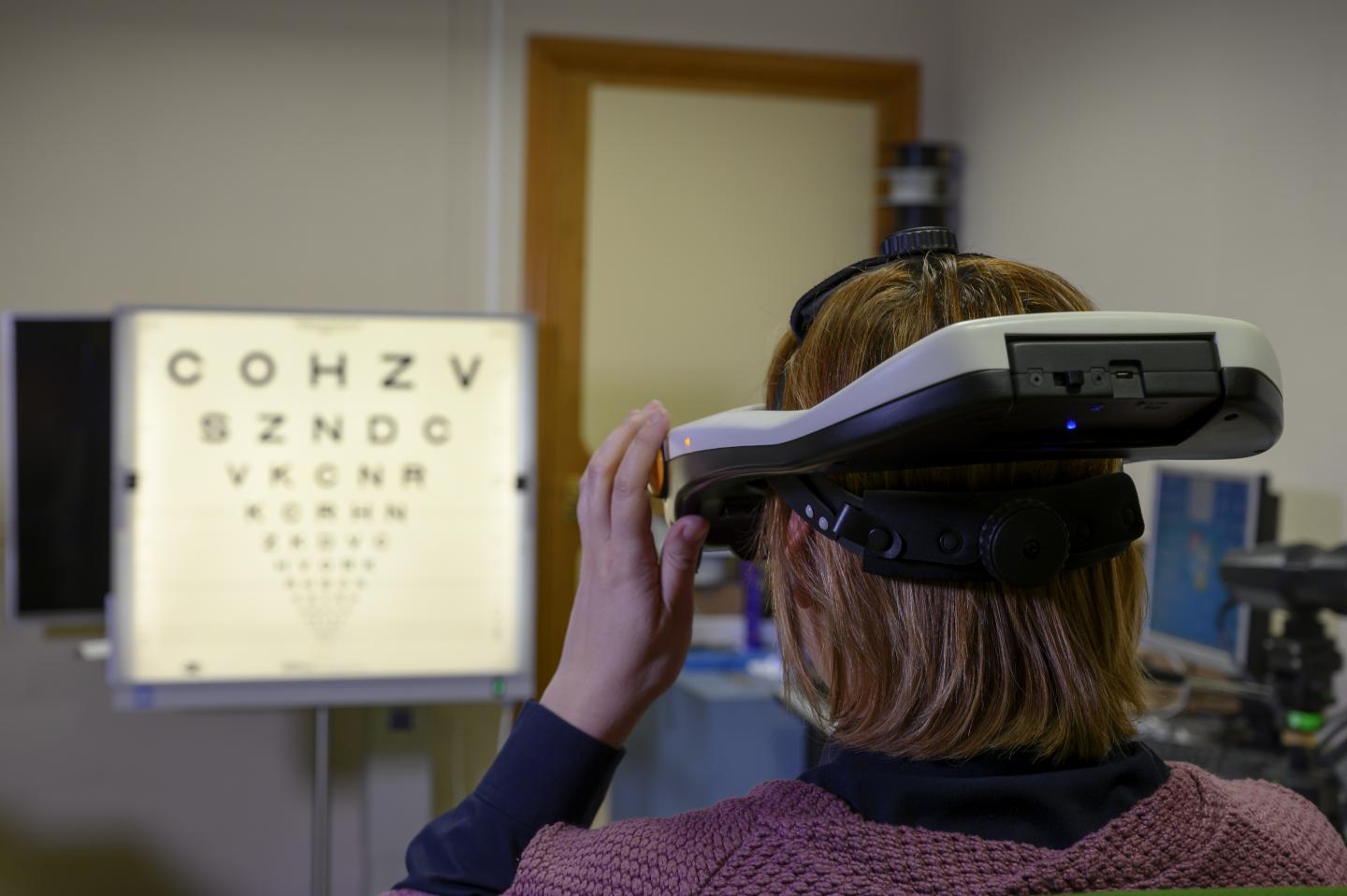The new technology, which is about to launched on the market, consists of a lightweight binocular helmet

Credit: YAIZA GONZÁLEZ/ CSIC Communication
The details regarding the validation of this new device are published in the latest issue of Scientific Reports.
Multifocal lenses are used in cataract surgeries – to replace the crystalline when it has lost its transparency – or to correct for presbyopia. There are different lens designs in the market, and choosing one or another depends on each patient’s tolerance and preference.
“The possibility of the patient experimenting vison with a multifocal lens before the surgery is very attractive to reduce uncertainty and to manage expectations”, ensures CSIC researcher Susana Marcos, who works at the Institute of Optics. Her team at the Visual Optics and Biophotonics Laboratory has spent years developing technologies of simultaneous vision simulation aiming at evaluating visual quality with new designs of multifocal lenses before they are implanted or even manufactured.
Now, they are introducing SimVis, a lightweight binocular visual simulator which is autonomous and wearable in helmets. In the article, scientists show the equivalence between the vision provided by their device and the intraocular lenses. In other words, lenses are depicted in the simulator.
A realistic experience
“Visual simulators are an ideal technique to provide patients with a new realistic experience of multifocality before the implantation of a new intraocular lens. In addition, if the simulator is miniaturized and has a more practical design than the ones currently available in the market, benefits could multiply”, adds Marcos.
Researchers validated the simulator’s realism in a group of patients by comparing the visual acuity obtained at different distances through a commercial trifocal lens – with focal points for close, intermediate and long focal distances – and through the same lens simulated by a spatial light modulator (another simulating technology) and by SimVis . “The response to multifocality depends on the subjects, but the real trifocal lens and the simulated one offered the same visual response through-focus in each patient”, concludes CSIC researcher María Viñas, first author of the article.
The new simulator can be wirelessly controlled by a mobile application or a tablet. With this program it is possible not just controlling the device’s lenses, but also to track the functional tests conducted on each patient wherever they are.
The technology developed by this group of CSIC scientists is protected by four patents – one of them received the award “Premio a la Mejor Patente del Año” from the Madrid+d Foundation – owned by CSIC, and licensed to the company 2EyesVision S.L., a spin-off founded, among others, by some of the study researchers.
###
Media Contact
Alda Ólafsson
[email protected]
34-915-681-499
Related Journal Article
http://dx.




